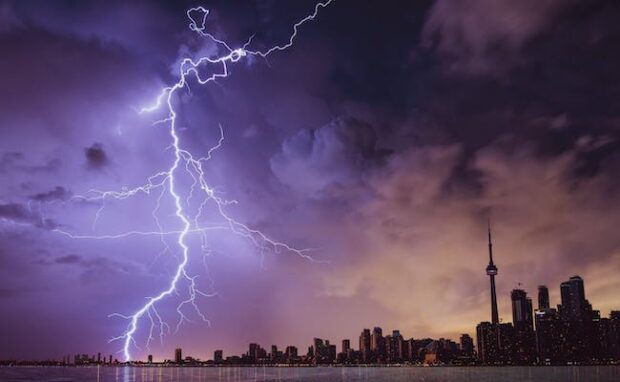Cyclones slow down national economic growth by 10 years
Potsdam Institute for Climate Impact Research (PIK) scientists estimate that modern cyclones can slow a country’s economic growth by a decade. The Institute calculated the Social Cost of Carbon of tropical cyclones for major economies and discovered their impact would be greater than existing estimates.
Countries rely on data gathered over many years by dedicated scientists. However, we may need to reassess their predictions as climate change worsens. It would likely bring more powerful and frequent storms that could severely impact nations. In response, we must understand these risks and figure out how to mitigate them.
This article will discuss how tropical storms could hamper economic progress for several countries. Next, I will cover ways these nations are managing natural disasters.
Why do cyclones have such a massive impact?

PIK experts discovered that tropical cyclones are becoming so strong and frequent that they may prevent countries from properly recovering from their damages. “Intense tropical cyclones have the power to slow down the economic development of a country for more than a decade, our analysis shows,” explained Hazem Krichene, one of the study’s authors.
The PIK scientist added that global warming brings more intense tropical cyclones, preventing most economies from properly recovering between storms. Krichene and her colleagues used the Social Cost of Carbon for an accurate estimate of the potential damages.
Policymakers use the SCC to analyze the costs and benefits of climate change mitigation initiatives. It considers future climate change damages that are discounted to their present value.
The new data accounts for these long-term impacts, boosting the global SCC by more than 20% compared to existing policy evaluation estimates. As a result, reduced economic growth from tropical cyclones may hinder economic growth more than their direct destruction.
You may also like: Coral reef restoration to reverse climate change damage
Recent research suggests conventional SCC estimates haven’t considered the long-term effects of extreme events. “This means that the real costs are probably even higher than currently estimated, and the benefits of climate mitigation consequently underestimated,” co-author Franziska Piontek from PIK said.
Comparing that with past evaluations increases the statistic amounts by more than 20% in developed nations. “When it comes to extreme events, much focus is put on immediate economic damages,” stated study author Christian Otto.
“However, it is as crucial to better quantify the overall costs of these events to inform societies of the real costs of climate change and the climate impacts that can be avoided by effective climate action,” he added.
How are we managing disasters nowadays?

The Philippines faces earthquakes and storms more frequently than other countries. That is why the Department of Science and Technology – Philippine Council for Industry, Energy, and Emerging Technology Research and Development (DOST-PCIEERD) is developing an AI system for disaster management.
The Philippine Information Agency (PIA) says it is working on the DATOS or Remote Sensing Data Science. It helps disaster response agencies estimate a flood’s extent.
“Immediately kasi in disaster management actually you want to know where the affected areas are. This means you have to come out where they are so you can provide the necessary response like rescue, evacuation, things like that,” Dr. Enrico Paringit, executive director of DOST-PCIEERD, said.
It relays information to the PAGASA (Philippine Atmospheric Geophysical and Astronomical Services Administration) and the National Disaster Risk Reduction and Management Council (NDRRMC). “Before, we did not know what was happening on the ground. Now, down to the nearest barangay, you will know the real situation,” Paringit said.
“The geo-hazard maps will show what will happen, the DATOS will show what is happening. For example, there was heavy rain last night, and when the satellite passes by, we will have data showing the extent of the flooding.”
You may also like: Google cuts 12,000 jobs as tech woes bite again
The University of Texas also created an AI algorithm that accurately predicts 70% of earthquakes a week before they happen. Here’s how it works:
- The experts started by giving their artificial intelligence statistical features based on the team’s knowledge of earthquake physics.
- Next, they commanded the AI to train on a five-year database of seismic data.
- Afterward, it listened for signs of incoming earthquakes.
The researchers admit that technology cannot reliably predict disasters anywhere in the world. Nevertheless, it delivered promising results in trials.
Conclusion
Researchers discovered that tropical cyclones are more destructive than initially estimated. PIK experts found they could slow down a country’s economic progress for a decade.
Most know that storms can devastate a nation the moment it makes landfall. However, we must focus on its long-term consequences to mitigate them properly.
Learn more about “The social costs of tropical cyclones” on the Nature Communications webpage. Also, check out the latest digital tips and trends at Inquirer Tech.